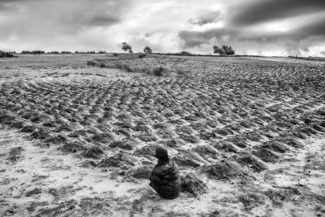A LOOK INTO THE HUMAN RIGHTS IMPACT OF CLIMATE CHANGE IN DROUGHT-STRICKEN SOUTHERN MADAGASCAR
Earlier this year Amnesty International commissioned award-winning Malagasy photographer, Pierrot Men to document the human rights impact of climate change and drought in Southern Madagascar. The southern region of the country commonly referred to
as Le Grand Sud (the Deep South) is currently experiencing its worst drought in 40 years, with more than a million people on the brink of famine and thousands more already facing catastrophic famine-like conditions.
Pierrot documented the lives of those most affected by the drought in a series called, Le défi du Grand Sud, The Challenge of the Deep South.
The Challenge of the Deep South
Photos and captions curated by Pierrot Men
Experince the full virtual exhibtion
Be part of the change
 take action
take actionINDIAN OCEAN CLIMATE NETWORK AND MADLab
DONATEMADLab and the Indian Ocean Climate Network (IOCN) are two Malagasy movements bringing together civil society actors, researchers, social entrepreneurs, young activists, and local community representatives who share a common vision of giving voice to local communities of the Deep South for short- and long-term impact solutions. The two movements are actively working with communities in Southern Madagascar impacted by the increasing drought, particularly women and youth. The India Ocean Climate Network was co-founded in 2015 by Marie Christina Kolo, a Malagasy eco-feminist activist and one of the leading climate voices in the world.
By donating via this link, you can support their work with local communities in southern Madagascar.


